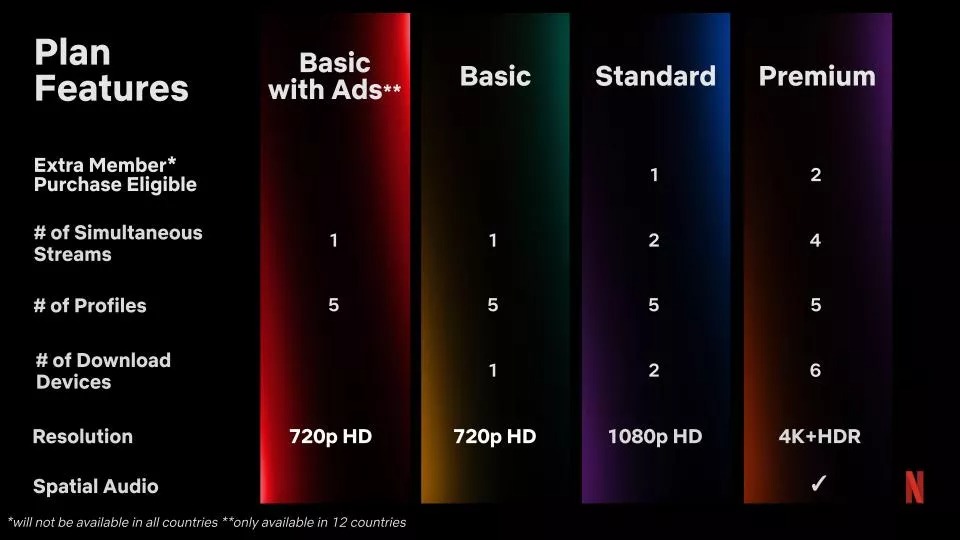
Before causing chaos in the U.S. market, Netflix has been experimenting with its new password-sharing crackdown policy in other regions, including New Zealand, Canada, Spain and Portugal.
As we reported last month, Netflix has the U.S. market in its crosshairs next. The streaming giant will begin enforcing its anti-password sharing rules by the end of June. According to a new Financial Times (FT) report, Netflix is expecting U.S. subscribers to vengefully terminate their membership with the streaming service, however, after observing an interesting trend in other markets, it's not worried one bit.
People are unsubscribing, but Netflix is winning in other ways
According to FT, Netflix is warning telecoms groups, particular those who offer Netflix as part as a bundled TV package, that a blowback is expected as the streaming giant cracks down on password-sharing.
Netflix warned that call centers will likely suffer an avalanche of complaints from subscribers who've grown accustomed to sharing their credentials with family and friends, according to sources close to the matter.
The streaming giant will roll out warnings to the U.S. soon regarding its anti-password sharing stance. Its ultimate mission is to stop the practice and turn non-subscribers into paying customers.
Many detractors have said that Netflix's password-sharing crackdown will turn its patrons against it and cause a major drop in subscribers — and they're not wrong. Netflix analyzed how other markets responded to its anti-password sharing pushback, and yes, there was a so-called "cancel reaction" that resulted in lower membership growth. However, after this occurrence, Netflix noticed a promising trend.
"After the initial drop-off, subscribers soon started adding 'extra member' accounts, boosting revenues and persuading management that it was taking the 'right approach,'" FT said. In other words, Netflix noticed a plummet in subscribers at first, but after some time, existing customers bit the bullet and added more paid accounts, which ultimately compensated for the initial membership drop. (See the chart below for a breakdown of the new subscription tiers.)

As such, Netflix is anticipating the same reaction in the U.S. market. It is expecting to weather a temper tantrum, so to speak, but it believes that it will eventually pay off because previous trends show that existing subscribers end up boosting revenues by adding extra member accounts.
Last month, April said that 100 million households worldwide share their accounts with others. Netflix claims that this has been negatively affecting its ability to invest in new TV shows and movies.







